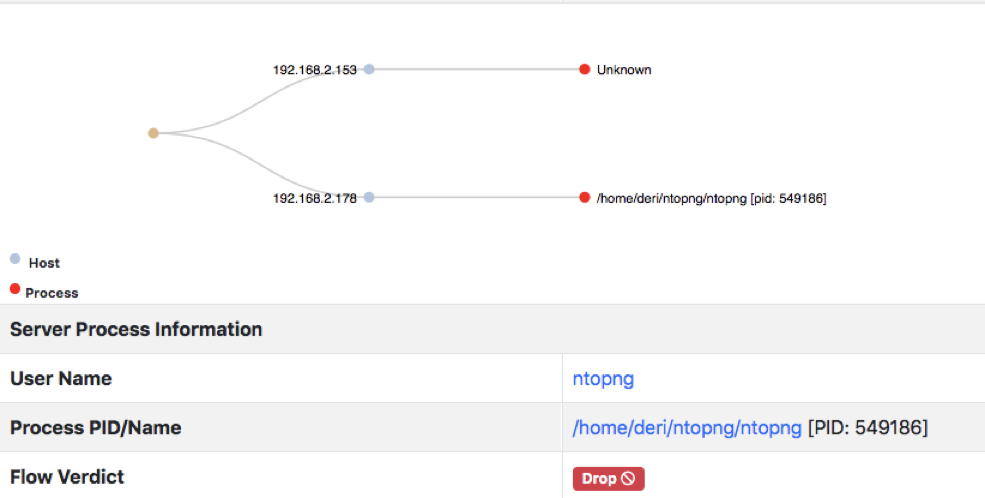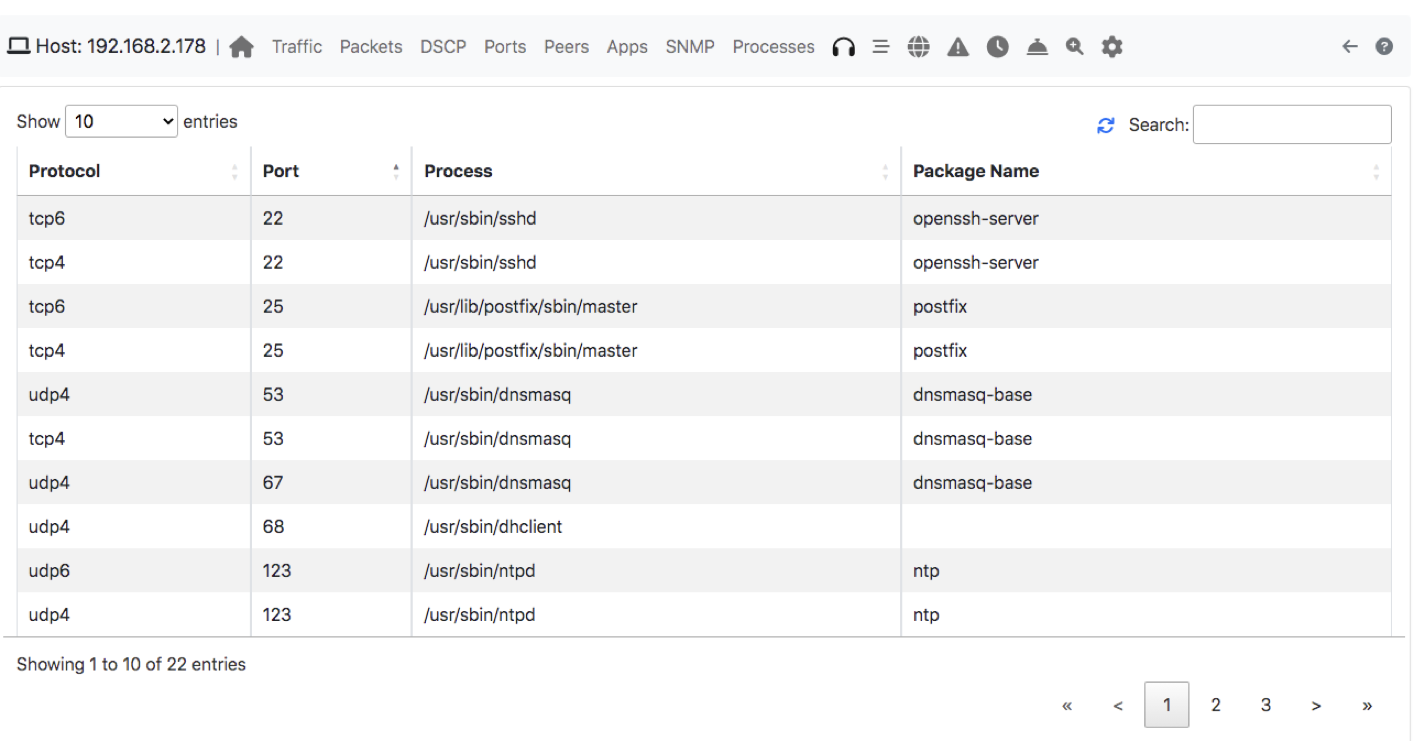Agent Mode support in nProbe
nProbe now supports integration with the operating system on Windows and Linux systems (eBPF based). This means that in addition to packet capture, nProbe can now report additional information about users and processes that have performed a given network activity.
Agent mode is enabled adding –agent-mode to the nProbe command line (it requires Enterprise M license) on Linux and Windows operating systems.
In essence we now have additional information elements:
[57640][Len 4] %SRC_PROC_PID Flow source proc PID
[57641][Len 16] %SRC_PROC_NAME Flow source proc name
[57897][Len 4] %SRC_PROC_UID Flow source proc userId
[57844][Len 16] %SRC_PROC_USER_NAME Flow source proc user name
[58012][Len 16] %SRC_PROC_PKG_NAME Flow source proc package name
[58028][Len 32] %SRC_PROC_CMDLINE Flow source proc cmdline args
[58030][Len 16] %SRC_PROC_CONTAINER_ID Flow source proc containerId
[57846][Len 16] %SRC_FATHER_PROC_NAME Flow src father proc name
[58036][Len 4] %SRC_FATHER_PROC_UID Flow src father proc UID
[57845][Len 4] %SRC_FATHER_PROC_PID Flow source father proc PID
[58037][Len 16] %SRC_FATHER_PROC_USER_NAME Flow src father proc UID name
[58033][Len 16] %SRC_FATHER_PROC_PKG_NAME Flow src father proc package name
[57847][Len 4] %DST_PROC_PID Flow dest proc PID
[57848][Len 16] %DST_PROC_NAME Flow dest proc name
[57898][Len 4] %DST_PROC_UID Flow dest proc userId
[57849][Len 16] %DST_PROC_USER_NAME Flow dest proc user name
[58013][Len 16] %DST_PROC_PKG_NAME Flow dest proc package name
[58029][Len 32] %DST_PROC_CMDLINE Flow dest proc cmdline args
[58031][Len 16] %DST_PROC_CONTAINER_ID Flow dest proc containerId
[57850][Len 4] %DST_FATHER_PROC_PID Flow dest father proc PID
[57851][Len 16] %DST_FATHER_PROC_NAME Flow dest father proc name
[58039][Len 4] %DST_FATHER_PROC_UID Flow dst father proc UID
[58040][Len 16] %DST_FATHER_PROC_USER_NAME Flow dst father proc UID name
[58035][Len 16] %DST_FATHER_PROC_PKG_NAME Flow dst father proc package name
Integration with ntopng
The integration with ntopn is seamlessly via ZMQ. Example:
nprobe -i eno1 --zmq tcp://127.0.0.1:1234 --agent-mode
ntopng -i tcp://127.0.0.1:1234
Inside ntopng you can display process information in the flow view

as well know the list of open ports on the host where nProbe runs:

Enforcing Process Traffic
Thanks to process visibility, nProbe can now report verdict about processes generating flows by means of a new information element that is also used in IPS-mode to report whether a flow should be dropped or pass.
[NFv9 57994][IPFIX 35632.522][Len 2] %FLOW_VERDICT Flow verdict marker (0 = unknown, 1=pass, 2=drop...)
The verdict is set to drop (2) whenever a local flow has been produced by a process that was not part of a Linux package (.apt or .rpm). This is because malware applications are often unpackaged and thus this is an indicator or a possible compromise. This is a Linux-only feature as Windows does not support packages.